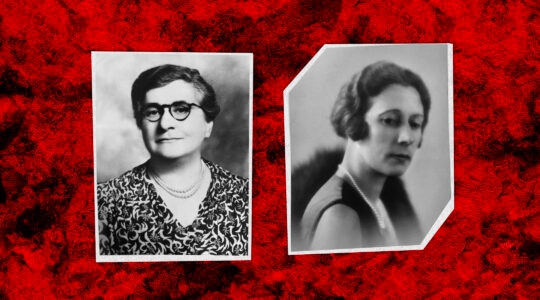Jews don’t celebrate Christmas, but it feels like everyone else does. And this “December Dilemma” forces us, as Jews living in a Christian country, to confront some difficult questions.
First of all, what do Jews think of Christianity? This isn’t an academic question. When Christmas is front and center in streets, stores and television screens, religious differences become part of the family conversation. I can remember my own children at a young age asking me, in their own words, “why did the Jews reject Christianity?”
Today’s parents will answer this question a lot differently than their own grandparents. Christianity was unequivocally rejected by Jews, to the point that many rabbinic thinkers considered the Christian Trinity to be idol worship. However, these attitudes shifted in medieval Europe, where Rabbinic authorities eventually accepted Christianity as a monotheistic religion.
And in the last 100 years, Jews and Christians have forged a comfortable ecumenical dialogue, to the point that the triumvirate of the Rabbi, Priest and the Minister is extremely common both on TV talk shows and in corny jokes. In this era of religious brotherhood, Jews have a heightened appreciation of the values they share with Christians. But will contemporary Jews be able to talk confidently about Judaism and Christianity without lapsing into relativism?
The December Dilemma is not just about theology. Jews at Christmas feel like an uninvited guest at a party, the man stuck outside in the cold pressing his face against the window. So Hanukkah has become the Jewish Christmas with plentiful presents; and, for the hyper-assimilated, there’s the Hanukkah Bush, essentially a Christmas tree with a quickie conversion.
But some still find the siren song of Christmas too difficult to resist. Cindy Chupack proclaimed in a 2006 article in The New York Times that she had decided to celebrate Christmas because she was overwhelmed by a desire for Christmas decorations and stocking stuffers, mainstays of a holiday virtually every other American celebrates. Chupack reminds us that the December dilemma is actually a year round dilemma: How will Jews maintain their identity in the face of a seductive and embracing culture? Ironically, a religious tradition that has heroically triumphed over persecution and oppression is finding it ever more difficult to overcome acceptance and tolerance.
Undoubtedly, Christmas challenges Jewish identity, which is why the December dilemma makes a yearly appearance in rabbinic sermons. But Christmas is an opportunity for Jews as well. As Samson Raphael Hirsch points out, living in the Diaspora offers Jews daily opportunities to be a light unto the nations. Each day, Jews can sanctify God’s name with acts of kindness. And there’s no time better for this than Christmas.
Rabbi Berel Wein tells a powerful “Jewish” Christmas story he heard from an editor at the Detroit Free Press. During the Great Depression, the editor’s mother, a recently arrived Irish woman, got her first job as a housekeeper with a prominent Orthodox Jewish family. The family went away on vacation, leaving behind their new housekeeper; they were due to return on December 24th. The housekeeper, who had never met any Jews before, decided to make sure that her employer’s home was set up properly for Christmas, so she went out and bought a Christmas tree and decorated the home from top to bottom. Arriving home, the family was stunned by what they saw. What would their friends think? The father took the new housekeeper aside, and in a gentle voice said to her: "In my whole life, no one has ever done such a beautiful thing for me as you did." He then took out a $100, a remarkable sum at the time, and gave it to the housekeeper. Only later did he sit down and explain to her that Jews do not observe Christmas. The Jewish man’s dignity and kindness made such an impression that the housekeeper’s son continued to tell the story forty years later.
This is what Christmas can teach us about being Jewish. During the holiday season, Jews can dedicate themselves to helping others, like the elderly Holocaust survivor I know who each Christmas distributes blankets to the homeless. They can do small acts of kindness, like covering for co-workers who want to celebrate with their families. And maybe, if Jews rediscover their mission of being a light unto the nations, Christmas lights will not be a challenge, but rather an opportunity.
Rabbi Chaim Steinmetz is the Rabbi of Congregation Tifereth Beth David Jerusalem in Montreal, Quebec, and is the co-chair of the Canadian Rabbinic Caucus, a Canada wide Rabbinic lobby group.
The New York Jewish Week brings you the stories behind the headlines, keeping you connected to Jewish life in New York. Help sustain the reporting you trust by donating today.




